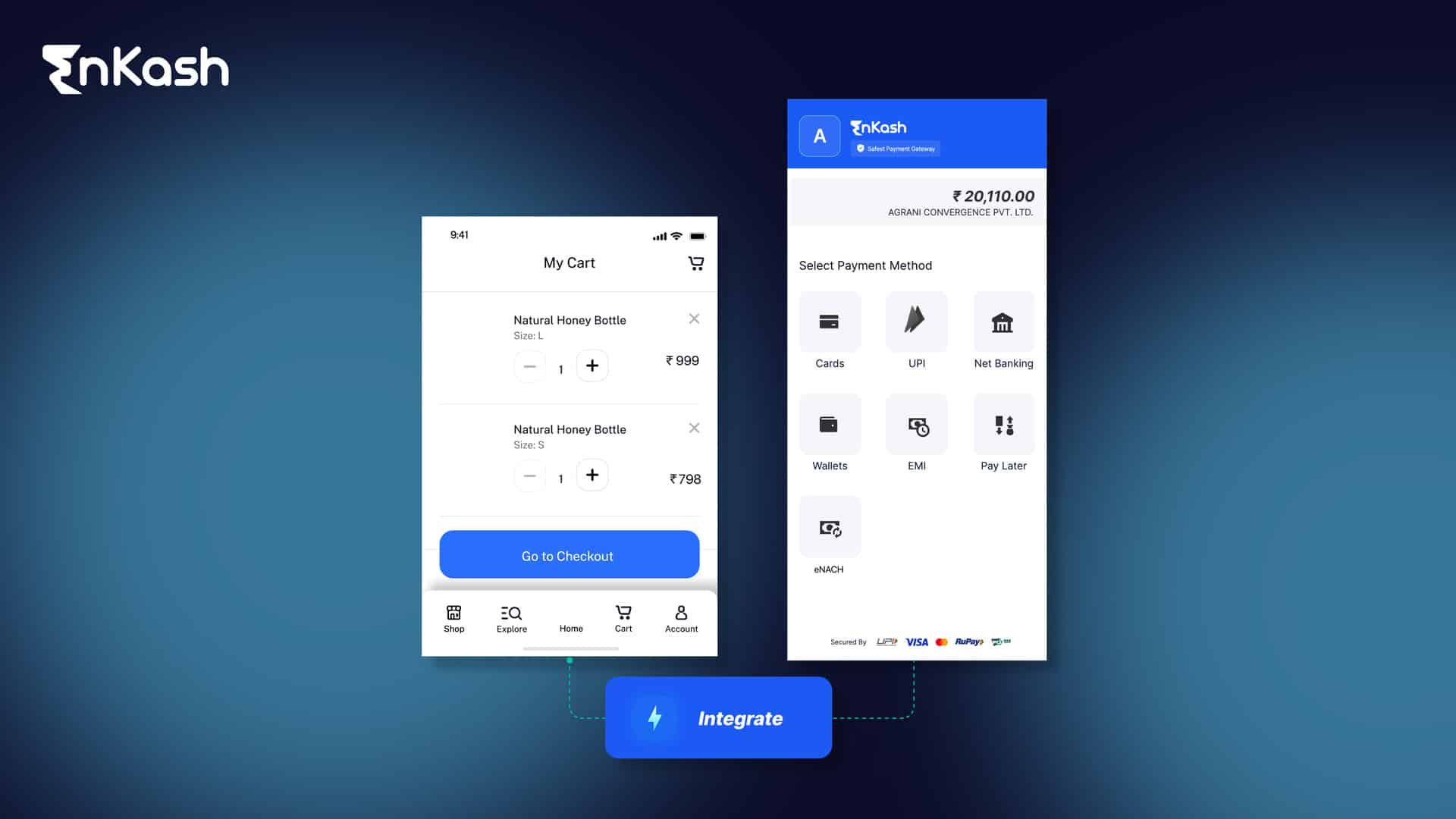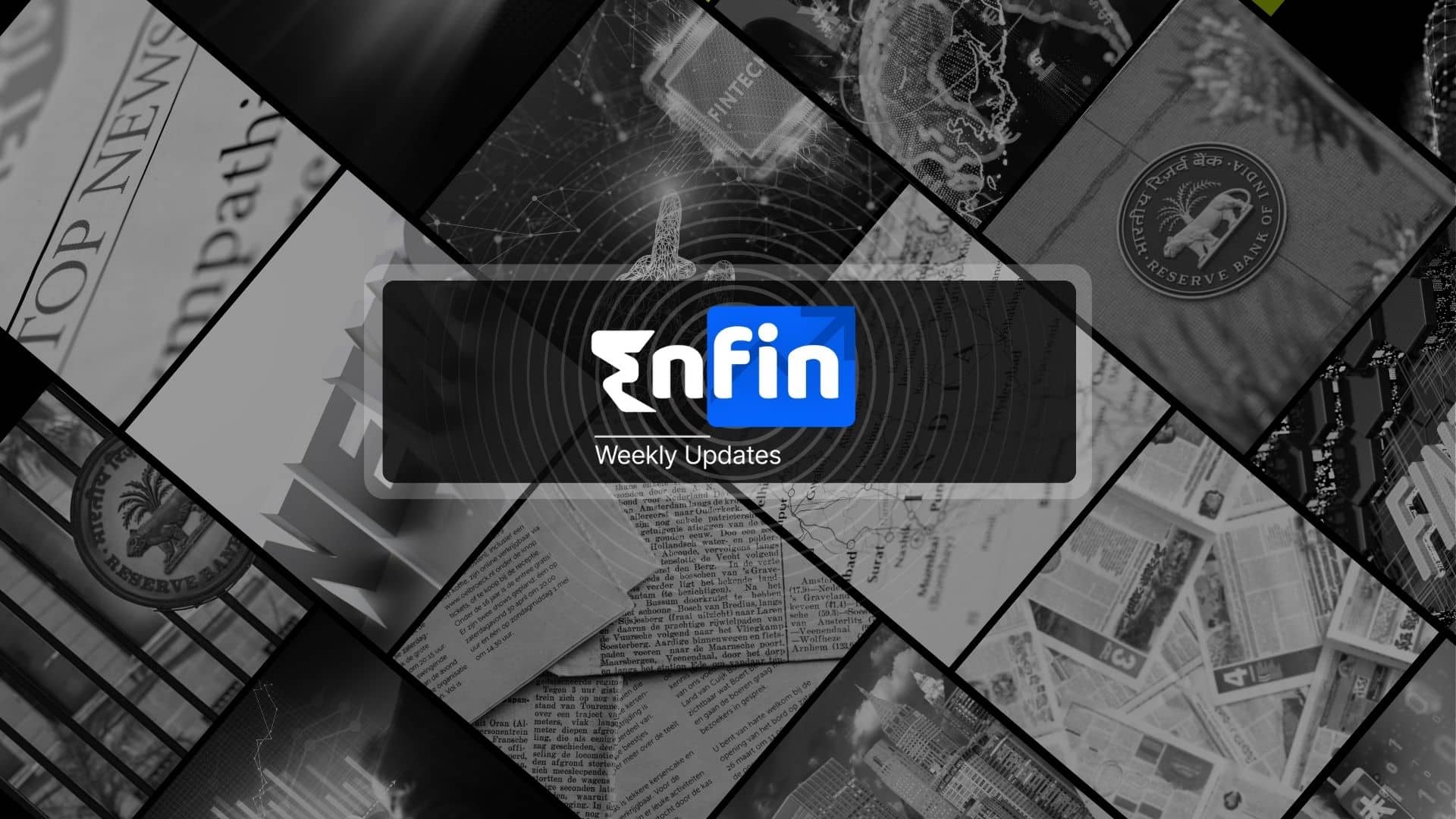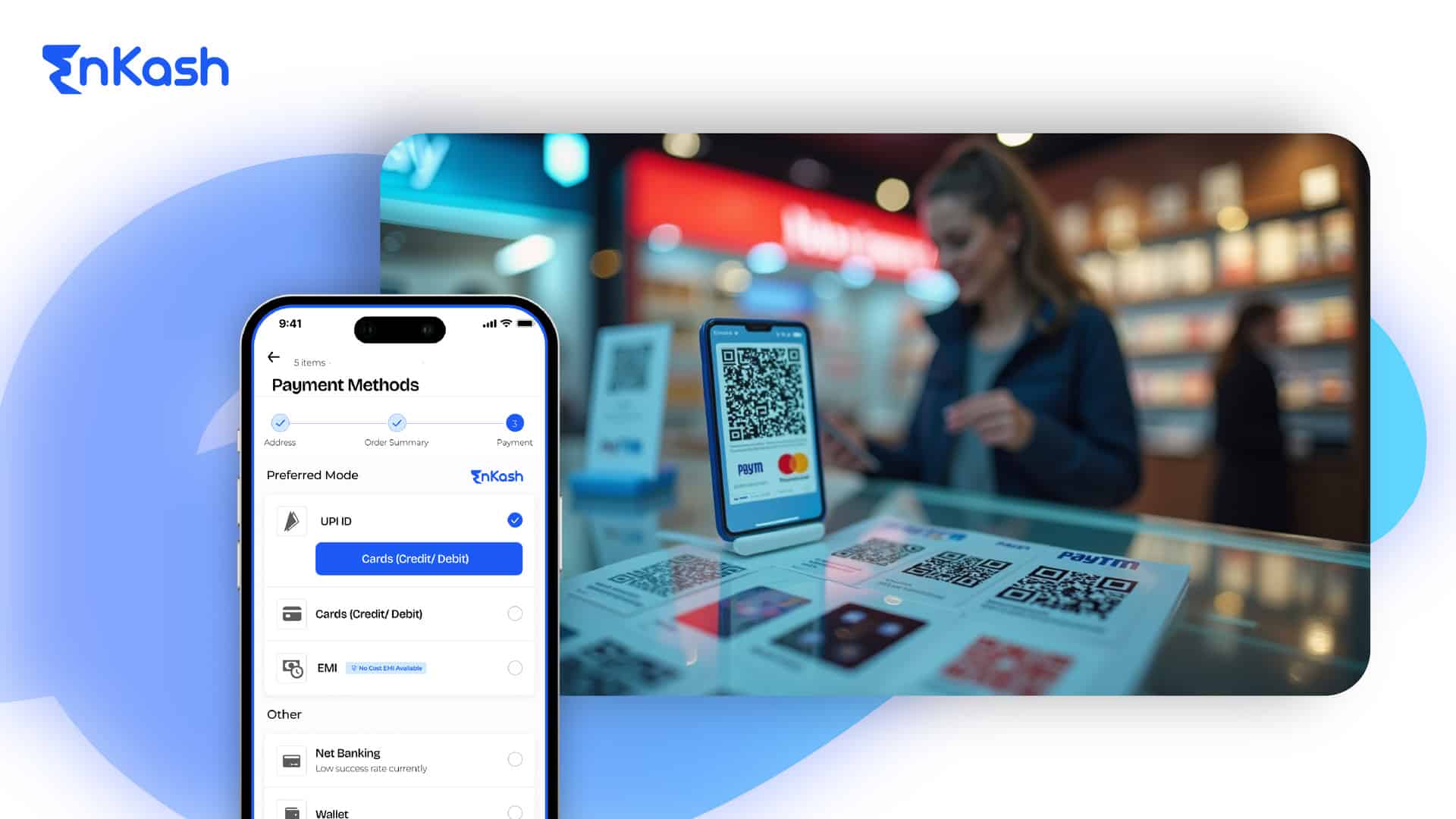Over the years, core banking solutions have grown and evolved as the spine of modern banking to suit the demands of the customers for immediate services and seamless experiences from the banks. Core Banking Solutions (CBS) is the technological revolution in banks, promoting full service access over different branches and online platforms.
In this blog, we will cover the definition of CBS, its major types, the advantages it offers to both customers and businesses, and the emerging trends shaping the future of CBS.
What is Core Banking Solutions (CBS)?
Core Banking Solutions (CBS) are centralized software solutions systems employed by financial institutions to manage and facilitate seamless banking operations on a day-to-day basis. With this system, customers can have complete access to their accounts without the need to visit the branch where the account was opened.
Basically, CBS consolidates records and transactions to a single central point from which all branches and the digital interface can view and update the information. It integrates all aspects of banking, such as deposits, loans, bill payments, and management of account information into a unified system available in real time. This means that every branch will possess updated information with regard to customers’ accounts to facilitate easy transactions anywhere in the world.
CBS meaning essentially points to the technological infrastructure of the banks that forms the core of every routine activity that a bank undertakes for managing its customers, processing transactions, and operating accounts.
Read More: ACH debit return charges
Architecture of Core Banking Solutions
The architecture of CBS generally follows a multi-tiered structure designed to ensure scalability, performance, and security. Its architecture consists of a number of key layers on top of each other for seamless banking services:
- Data Layer: This is the base of CBS where all the customer information, transaction records, and account data are kept safely.
- Business Logic Layer: This is the layer that manages the core functionalities of the banking system, comprising transaction processing, account maintenance, and credit disbursement.
- Application Layer: At the top of the business logic layer, the application layer interacts directly with end users such as customers, bank employees, or third-party services. It provides digital interface mechanisms like mobile banking, internet banking, etc.
- Integration Layer: It allows CBS to integrate itself with external systems such as ATMs, payment gateways, mobile applications, and other financial networks. It ensures CBS is integrated smoothly across all touchpoints or channels.
Components of Core Banking Solutions
CBS banking is designed to execute several functions. These components play a role in enhancing and simplifying the operations of a bank:
- Customer Relationship Management (CRM): Manages things related to customer relationships, enabling banks to find further customers, retain the existing ones, and offer customized services.
- Deposit and Loan Management: Opens various accounts, processes different types of loans, calculates interest rates, and handles deposits and withdrawal management.
- Payment and Transaction Processing: Enables a variety of financial transactions, such as deposits, withdrawals, fund transfers, and bill payments, ensuring that they are handled with both speed and accuracy.
- Risk Management and Compliance: Identifies, measures, and controls risks, including credit and operational risks, while observing regulatory standards.
- Financial Reporting and Analysis: Provides reports of the institution’s financial condition for the internal teams to analyze and make decisions. Based upon that, it ensures the institution remains in regulatory compliance.
- Security Modules: It ensures data security such as encryption, authentication, and access control mechanisms to provide a shield against customer and transactional data from the threat of cyber crimes.
Read More: Balance sheet formats
Key Types of Core Banking Solutions
Due to the different operational structures and different functional needs, different banks need different types of CBS to serve various customer requirements. Based on the services offered, CBS solutions can be differentiated into various types, including:
1. Retail Banking Systems
Retail banking systems are developed to handle individual customers’ needs in terms of management of their personal accounts, savings, loans, mortgages, and facilities to credit grants. Such a type of CBS is customer-oriented and handles large amounts of transactions that characterize the daily banking activities.
- Key Features: Deposit management, loan management, account maintenance, and transaction processing.
- Target Audience: Individual consumers, small business owners, and retail clients.
2. Corporate Banking Systems
Corporate banking systems address business clients by managing and processing large-scale transactions, and providing loans, and other credit facilities. It pays attention to specific business needs of treasury management, corporate credit management, and trade finance.
- Key Features: Corporate credits, business loans, treasury services, and trade finance.
- Target Audience: Corporations, large enterprises, and commercial clients.
3. Universal Banking Systems
Universal banking systems are integrated solutions serving both retail and corporate banking functions. The system is supposed to be used by large, diversified financial institutions offering services to both individuals and businesses.
- Key Features: A combination of retail and corporate banking features, such as personal accounts, loans, and business banking services.
- Target Audience: Large banks with a broad customer base.
4. Private Banking/Wealth Management Systems
Private banking systems are those designed to meet the needs of HNWIs (high-net-worth individuals). These systems offer customized services such as tax planning, estate management, investment advisory, and portfolio management.
- Key Features: Wealth management tools, portfolio management, investment services, and high-level customization level.
- Target Audience: High-net-worth individuals, family offices, etc.
Read More: Instant card management
Benefits of Core Banking Solutions
The implementation of CBS has a number of advantages to customers and businesses alike. These advantages are one of the main reasons for the mass implementation of CBS by banks worldwide.
1. Benefits for Customers
- Convenience and Accessibility: Customers can access their accounts and transact at any branch or through digital channels without necessarily having to go to their own branch. Access to this around the clock adds greater value to customer convenience, ensuring that services related to banking are at one’s fingertips.
- Faster Transactions: CBS reduces the processing time for regular routine transactions, such as deposits, withdrawals, and balance checks. It ensures faster service delivery and hassle-free banking experience.
- Global Access: Deposits made at one branch reflect instantly in all other branches. Customers are thereby assured of withdrawing their money from any location, be it country or abroad.
- Improved Service Delivery: Customers are assured enhanced service delivery by way of internet banking, mobile banking, and ATMs. These services ensure that banking is available to all people, even to those who live in remote areas.
- Enhanced Security: CBS offers the right security through data encryption and multi-factor authentication, ensuring that transactions and sensitive customer information related to customers are kept safe from fraud and cyber attacks.
2. Benefits for Businesses
- Operational Efficiency: CBS automates all sorts of banking processes and reduces manual intervention to minimize errors. This helps the banks process large volumes of transactions quickly as well as accurately.
- Cost Reduction: Automation of processes reduces the demand for manual labor and helps banks lower operational costs. It leads to higher profit margins and provides a scope for banks to quote more competitive prices for their customers.
- Real-time Data Access: CBS gives businesses real-time access to transaction data in order to make informed decisions on cash flow management, fraud detection, and other financial matters.
- Better Customer Relationship Management (CRM): CBS integrates all the information about the customers at the core. Hence, banks can provide customized services and solutions to customers according to their needs.
- Compliance and Risk Management: CBS assists banks in meeting regulatory requirements and compliance with industry standards because of the automation of compliance checks and risk assessments.
How Do Core Banking Solutions Work?
CBS enhances the efficiency of the banks in their operations by consolidating information and automating activities across all branches and digital channels. The CBS integrates banking functions such as deposits, loans, bill payments, and account management into a single system. This sits on a central server that allows real-time access to customer information, transaction records, and account balances from any other branch or digital interface.
For every transaction that a customer does, such as depositing, withdrawing, or transferring money, the CBS system instantly checks the identity of the customer, the account balance, and updates the record. The transaction details are then reflected across all branches.
CBS also provides internet banking, mobile banking, and fund transfer services such as IMPS, NEFT, RTGS, etc., thereby enabling customers to conduct any type of transaction anytime and at any location. It minimizes the risk of errors and delays in bank operations by automating the manual processes.
In other words, CBS is the digital backbone of a bank and provides easy, comfortable access to bank services for customers while enabling financial institutions to work better with less expenditure and improved security.
Read More: Cashflow analytics
Emerging Trends in Core Banking Solutions
With the introduction of newer and better technologies, CBS has become more capable. CBS is embracing new technologies, and these are transforming the way it used to work. CBS offers all new features to banks and customers. Some trending aspects of CBS include:
1. Cloud-Based Core Banking Solutions
Cloud-based CBS is gaining momentum as it is scalable, flexible, and cost-effective. These systems enable banks to hold huge amounts of data in a secure manner and facilitate customers to access banking services from anywhere in the world. It also eliminates the need to invest in expensive infrastructure, saving both capital and operational costs.
- Benefits: Cost efficiency, faster deployment, better disaster recovery, and scalability.
2. Artificial Intelligence (AI) and Machine Learning (ML)
AI and ML are being integrated into CBS to improve customer service, fraud detection, and risk management. AI-driven chatbots support customers all day and night with queries, while machine learning algorithms use transaction data to detect strange activity and red flags regarding fraudulent activities.
- Applications: Chatbot customer service, fraud detection, credit scoring, and predictive analytics.
3. Blockchain Technology
Due to the fact blockchain ensures tamper-proof transaction records, it revolutionizes CBS. The decentralized nature of blockchain makes sure that all financial transactions, are secure and traceable. This technology is also useful regarding cross-border payments and remittances.
- Benefits: Transparency, enhanced security, reduced fraud, and faster cross-border transactions.
4. APIs for Third-Party Integration
APIs are rapidly becoming a must-have part of modern CBS. In fact, APIs allow CBS to integrate seamlessly with third-party services such as payment gateways, FinTech apps, and other banks. Simultaneously, it enables the banks to offer service offerings to customers.
- Applications: It can be integrated with mobile wallets, digital payment systems, and other financial platforms.
5. Corporate Travel Booking Integration
Integrating corporate travel booking solutions is one of the recent advancements in CBS. It will facilitate business organizations to conduct all financial transactions and manage corporate business travel requirements. Businesses can use CBS for automated travel bookings, managing expenses, and integrating efficient banking payment solutions into travel management.
- Benefits: Soothing corporate travel management, controlling expenses, and integration of banking payment solutions.
The Role of Core Banking Solutions in Shaping the Future of Banking
Core Banking Solutions are fast becoming the nucleus of change in banking, driving innovation, efficiency, and better customer experiences. Being the spinal cord of modern banking operations, CBS centralizes and automates core banking processes, such as account management, transaction processing, and customer data management. In this way, it enables banks to seamlessly provide their services across a network of branches and various digital platforms. It provides real-time availability to any banking operations.
CBS is going to shape the future of banking in the way institutions to embrace emerging technologies like artificial intelligence (AI), machine learning (ML), and blockchain. These innovations will further make better the ability of CBS to offer customized banking services, improve security measures, and reduce fraud. Besides this, cloud-based CBS deployment is expected to cut down operational costs and enhance scalability, hence making such advanced services more available to businesses and consumers alike.
The flexibility in CBS also allows banks to integrate various third-party services, hence extending the products and related services. With the ever-growing demand for quicker, safer, and more efficient banking, CBS will become one of the major drivers that will enable financial institutions to remain competitive and meet the changing customer expectations.
Read More: UPI payments
Conclusion
Core Banking Solutions (CBS) form the backbone of modernization in the banking sector. It enables them to offer anytime, anywhere banking with seamless transactions, and robust security. Thus, CBS has significantly remodelled the way financial institutions operate.
As such, CBS will continue to evolve with the addition of newer technologies, offering new functions and benefits. Businesses and customers will stand to gain from the increased efficiency, security, and more customized experiences. If you are looking to smoothen your banking processes, embracing the power of CBS would provide you with a plethora of benefits for a brighter financial future.
FAQs
Can I access my account at any branch with CBS?
- Yes, CBS allows customers to operate their accounts from any branch of the bank, no matter where you have opened the account.
What are the types of CBS used by banks?
- The major types of CBS include retail banking systems for individual customers, corporate banking systems for business clients, universal banking systems for both retail and corporate clients, and private banking systems for high-net-worth individuals.
How does CBS handle security?
- The CBS employs very strong security features that include data encryption, multi-factor authentication, and access controls in order to protect sensitive customer data and prevent unauthorized transactions or access.
What is the role of cloud technology in CBS?
- Cloud technology complements CBS with scalable, cost-effective ways of storing and processing information. Cloud-based CBS allows banks to access their data securely from anywhere, save on infrastructure costs, and deploy new features and services faster.
How does CBS benefit businesses?
- CBS benefits businesses by providing real-time transaction processing, enhances cash management, gives total transparency, and offers easy integration with third-party services. It also allows businesses to save on operational costs through the automation routine banking tasks, thus making better financial decision while promoting better customer retention through the delivery of improved services.













